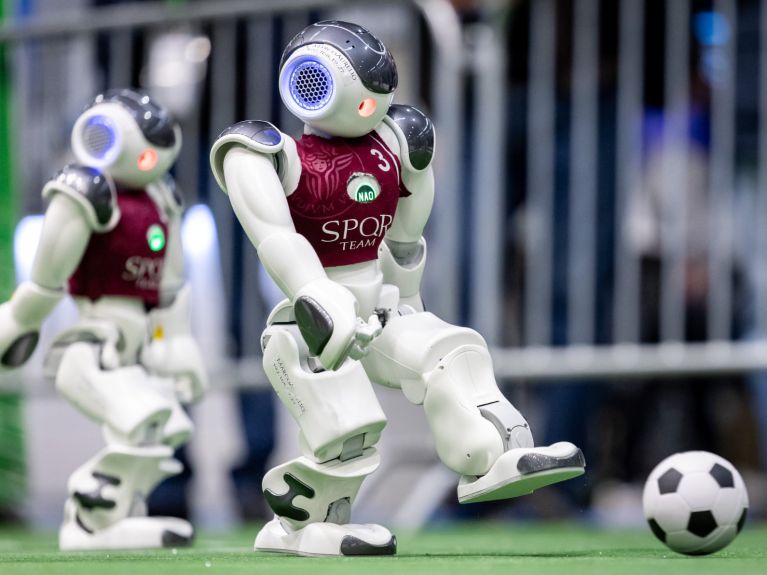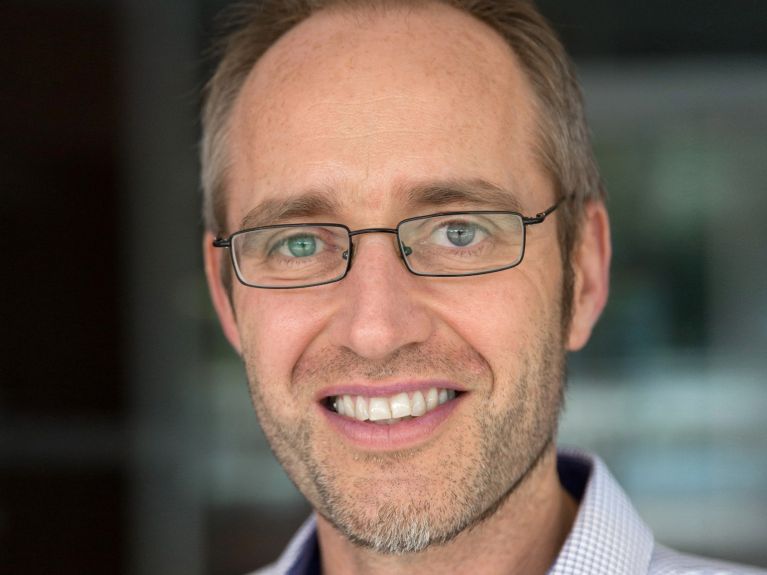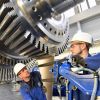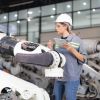“Robots have to better understand humans - and vice versa”
Tobias Kaupp is one of Germany’s leading robotics researchers. He reveals why robots will soon no longer need to be programmed.

Professor Kaupp, one important field of application is industrial robotics. What changes are happening there?
The large industrial robots we are all familiar with, like in the automotive industry for example, aren’t intelligent machines but automated systems that precisely carry out the same tasks over and over again. They were developed specifically for mass production. We are now moving towards customised mass production, however. Product diversity is increasing and consumers want individually configured products. To achieve this, we need flexible and intelligent robots. New developments in sensor technology and machine learning are helping make these systems more adaptable. The goal is for robots to work hand in hand with humans. For this to work, robots have to better understand the way humans act - and vice versa.
What are the biggest challenges here?
One major obstacle is the fact that robots often still require complex programming. Nowadays, this is done by experts, but the idea is that in the future, workers without programming skills will be able to adjust robots themselves. Intuitive control methods are conceivable - using for instance smart glasses, gesture commands or simply by showing the robot how a particular process is carried out. Breakthroughs are currently being achieved with regard to the latter in particular thanks to advances in artificial intelligence. It is hoped that robots will be able to fully understand and generalise the tasks to be performed, simply by being shown how they are done by a human.
What other applications are there for robots?
There are very many applications, for example in field robotics. In agriculture for instance, where autonomous machines can sow seeds, selectively fertilise and weed, monitor the growing process and then harvest the crop at the end. Drones are already being used to map landscapes and built-up areas or to search for missing persons. Underwater robots can monitor coral reefs or be deployed for archaeological research missions.

One common concern is that jobs will be lost as a result of automation. Are such concerns justified?
No, I don’t think so. Studies indicate that more jobs overall will be created thanks to digitisation, though they will require different qualifications. Companies need to train up their staff so that they can keep pace with the technological advances. More recent studies have even shown that firms that use robots have created far more new jobs than those that reject the idea of automation.
How do you think Germany compares with other countries as a location for robotics?
Germany is a leading robotics nation, especially when it comes to industrial automation. In terms of the number of industrial robots used per 10,000 employees, Germany currently ranks fourth - after Korea, Singapore and China. Besides the Asian countries, there is considerable competition from the US, which is investing massively in AI and robotics. Germany has produced some very good research institutions and important robotics researchers who have revolutionised driverless vehicles, for example. What would do robotics good would be less risk aversion, increased public and private investment and pooling of existing strengths.
How will robotics evolve over the next few years?
Robots will continue to become an increasing part of our daily lives. Whether in industry, in the services sector, in the transport industry with driverless vehicles and drones, in the home or in care settings - robots will be taking on more and more tasks, thanks in part to new AI approaches involving large quantities of data. What is important is for this development to give due consideration to ethical, social and legal aspects.
About the interviewee
Professor Tobias Kaupp heads the Center for Robotics (CERI) at the Technical University of Applied Sciences Würzburg-Schweinfurt (THWS). Kaupp and his THWS team are the current world champions in the international RoboCup competition in Nuremberg and have won the German cup in the RoboCup@Work league several times.


